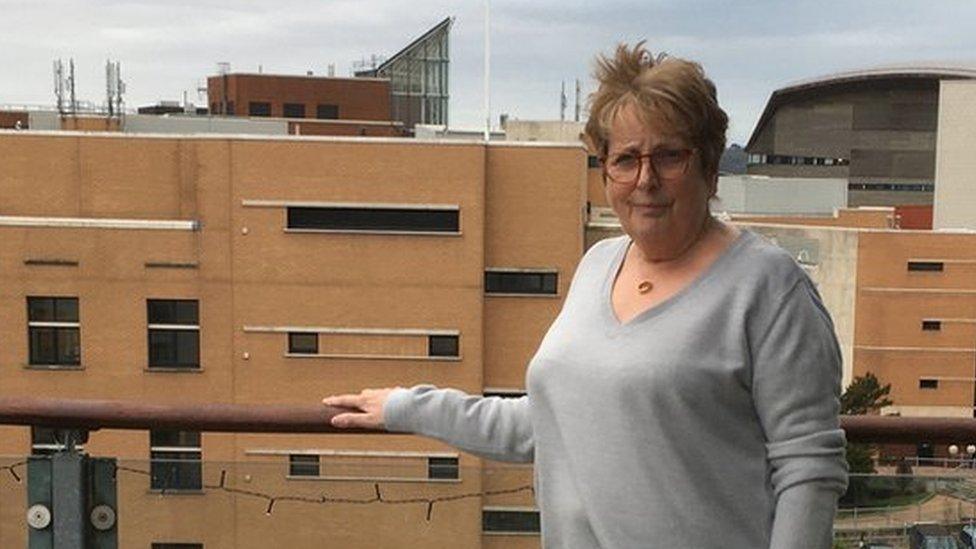Cladding: Free Wales financial advice scheme launches
- Published
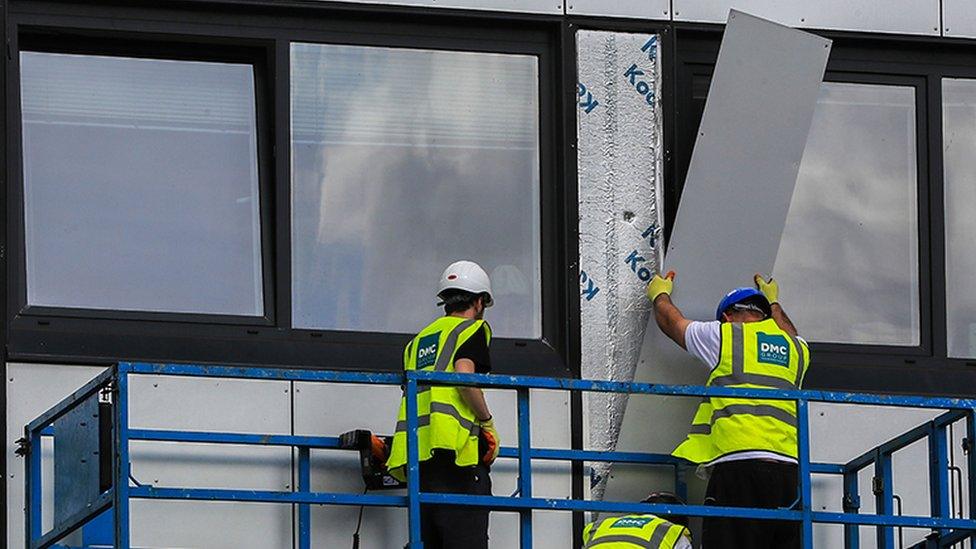
Welsh government minister Julie James has previously said she is "disappointed" at the UK government's "England-only" approach
People facing serious financial hardship due to problems with cladding on their homes in Wales will be offered free financial advice.
The leaseholder support scheme , externalis for those most impacted by unsafe cladding on their homes.
Housing Minister Julie James said it would help people to "move on with their lives" including those advised to sell their property.
The Welsh Government will "enable" them to sell "at a fair market value."
Part of that may be an offer of a buy-out by the Welsh government.
The scheme is the next stage in the process for those in properties deemed unsafe following the Grenfell Tower fire. An eligibility checker has now been made available on the government website., external
Mark Thomas rents out his apartment in Cardiff Bay and is from the campaign group Welsh Cladiators. He said the scheme would probably only help a few people who would be "still left with the problem that the building is unsafe".
"Delighted that the Welsh government is prepared to help some people in distress [but it] sounds like a very long-winded process," he said.

Welsh Cladiators' Mark Thomas previously accused Welsh ministers of failing to deal with the situation as a "matter of urgency"
"It does absolutely zero to fix the fundamental problem… still left with the problem that the building is unsafe.
"I think it's going to help a very, very small minority."
Following the 2017 Grenfell Tower tragedy in London, a number of apartment blocks in Wales were found to have fire safety defects and remediation work is yet to be carried out on many of them amid rows over who should pay.
Welsh government ministers have been accused of lacking action over cladding, with leaseholders saying political arguments with the UK government were not helping those living with the problems.
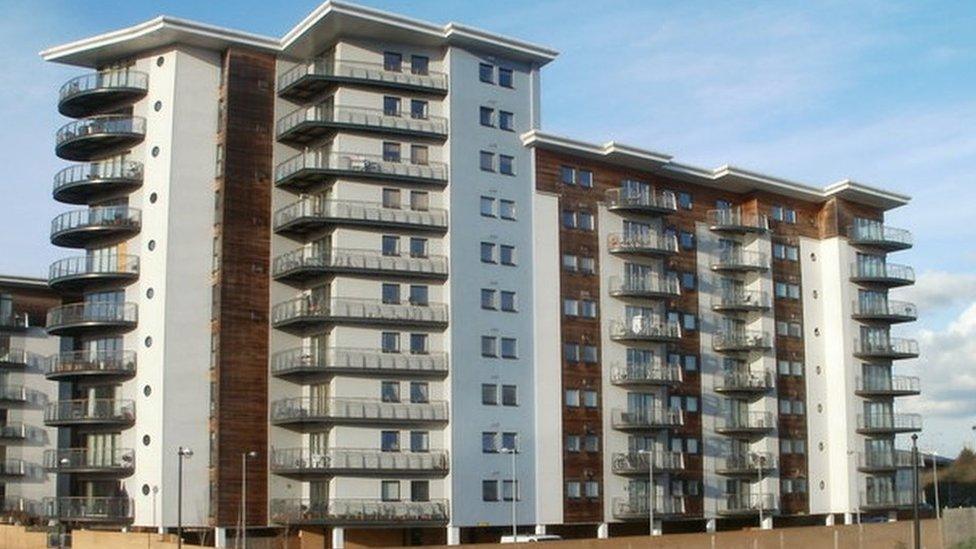
Many leaseholders have found it impossible to sell due to exposed fire safety defects
In England, about 40 construction firms have signed a UK government pledge to fund any required fire safety work, but it does not apply to Wales.
The Welsh government has set up a Welsh Building Safety Fund worth £375m and the leaseholder support scheme has gone live on Monday.
To be eligible, the person must be the owner/occupier of the property which is in a building at least 11 metres high, or be what's classed as a "displaced resident".
This is someone who had been forced to leave the property for personal reasons or has become an "accidental landlord" over time.
People can become accidental landlords if, for example, they have to rent their home because they cannot find a buyer, or if they have to move to another area because they have a new job.
Ms James said she is also speaking to developers to encourage them to correct faults in the longer term.
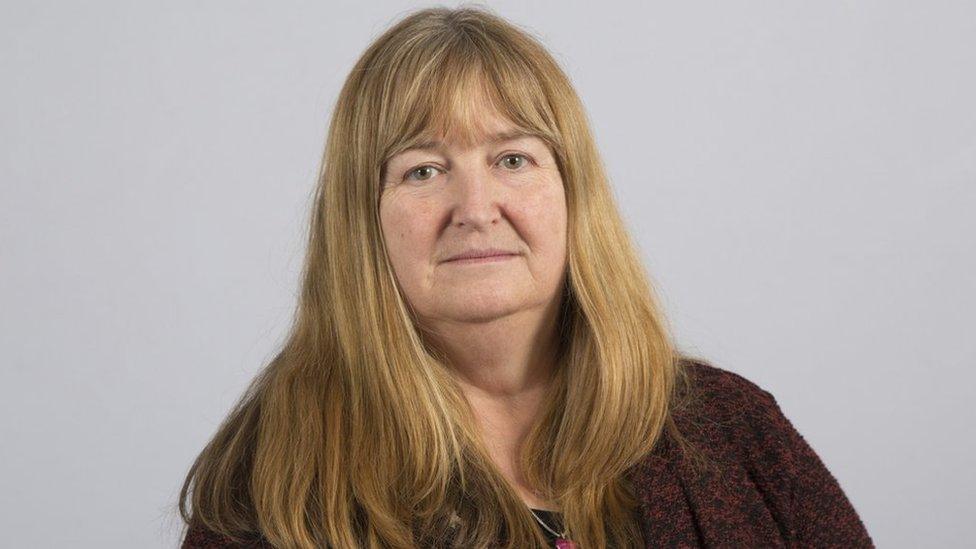
Housing minister Julie James says she 'understands' peoples' frustration
She said even though survey work is continuing at pace, "it's going to take us a while... to get round to every building in Wales".
"Some people just can't wait that long," she said. "The idea is to help people who are in that severe financial hardship move on with their lives.
"We've worked out this scheme now to see if we can help as many people as possible who find themselves in that circumstance," she added.
Ms James said she understands "entirely how frustrated people are with this... but unfortunately, each building is different and each management structure is different and each set of problems is different."
Welsh Conservative shadow housing minister, Janet Finch-Saunders said: "For years, people in Wales have been living in fear as a result of dangerous cladding with very little help coming from the Labour government.
"People living in these flats don't need advice, they need access to cash.
"While the UK Conservative government has been leading the way in dealing with dangerous cladding, Labour in Wales has been too slow in rolling out funding."
Plaid Cymru's Rhys ab Owen MS was concerned the support didn't go far enough.
"Any moves to end this crisis are welcome, but we need to move quickly towards making sure that the buildings that thousands of people in Wales call home are safe and that they can move on with their lives," he said.
"All options must be on the table and seriously considered."
- Published13 June 2022
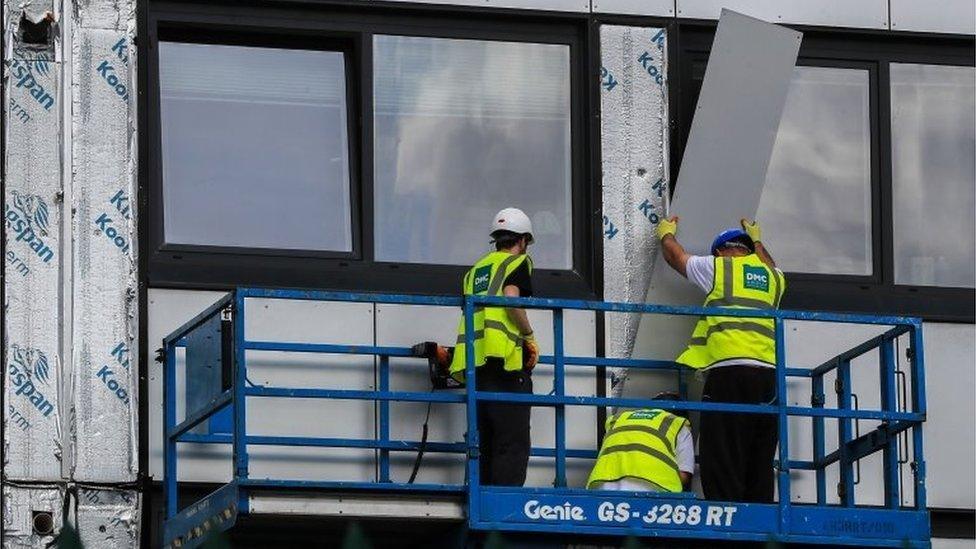
- Published15 May 2022

- Published16 December 2021

- Published4 May 2022
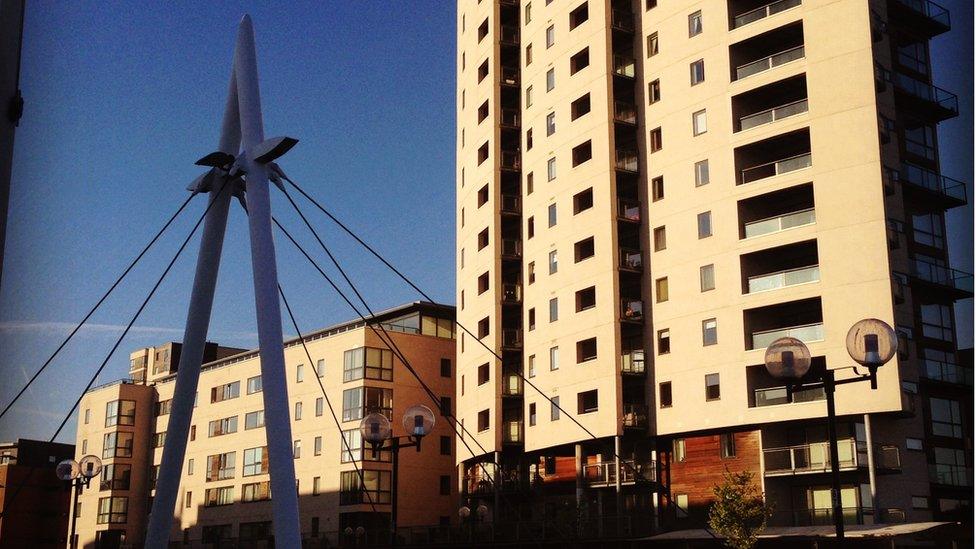
- Published10 February 2022
